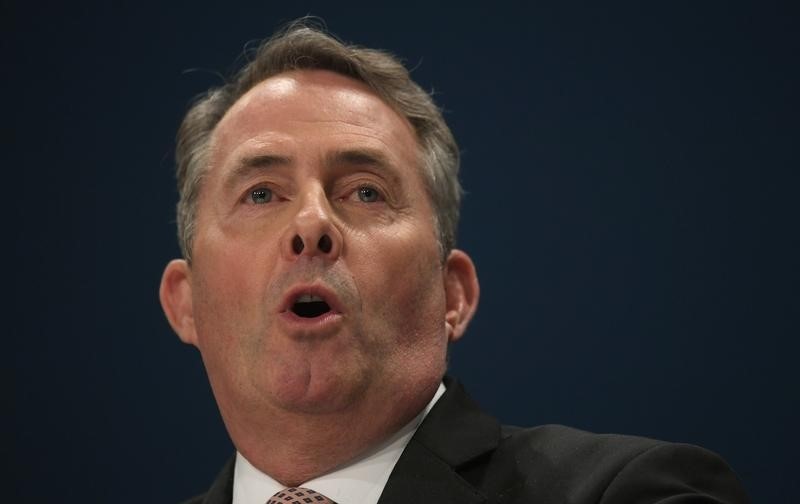By Kylie MacLellan
LONDON (Reuters) - The difficulties in concluding an EU-Canada trade deal show the importance of Britain reaching an agreement over its future relationship with the EU before it leaves the bloc, British trade minister Liam Fox said on Wednesday.
Fox told a committee of lawmakers the seven years it has taken to reach the CETA deal, and the delays in signing it after it was rejected by a Belgian regional authority, showed the difficulty of doing a deal with such a large number of partners.
Article 50 of the EU's Lisbon Treaty allows for an initial two year period of divorce talks before Britain leaves the bloc. Any agreement reached in that time would not be subject to the same level of vetos as a free trade agreement (FTA), he said.
"That sort of procedure would only be undertaken were we to leave the European Union after our Article 50 period without any agreement whatsoever and were looking to seek a new FTA from outside," he said.
"It's in the interests quite clearly following this (CETA) experience for all concerned to minimise any sort of economic trade and political disruption to ensure that's done with the minimum of fuss."
Belgian politicians entered a second day of talks on Wednesday on the future of CETA after six hours of negotiations on Tuesday failed to overcome a veto from the region of Wallonia that is stopping the deal being signed.
Fox said the experience of CETA may cause some to question the process of agreeing trade deals within the EU in future, with the EU Commission likely to want to have greater control.
"There are going to be a number of political tensions on how that process may go forward ... those who want to see greater trade liberalisation may be asking whether the current process is too lengthy and whether there are too many possible impediments," he said.
He also said it was to the advantage of all EU citizens to remove customs costs and have greater trade liberalisation.
"Those who put politics ahead of prosperity might want to think twice," he said.
Asked by an opposition Labour lawmaker what measures Britain would put in place to defend itself post-Brexit against unfair trade practices such as the dumping of Chinese steel, Fox said a debate would need to be held over trade defence options.

"It is absolutely right that we will require to legislate prior to leaving the European Union in order to provide ourselves with trade defence from day one," he said.